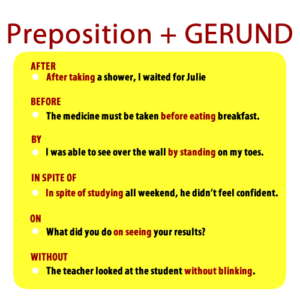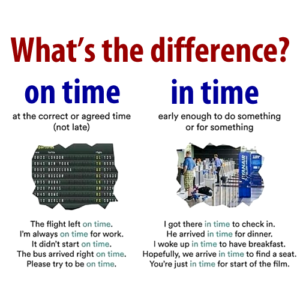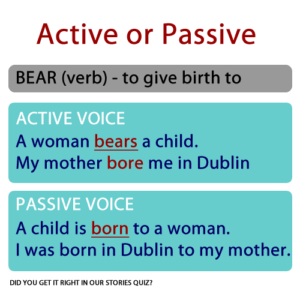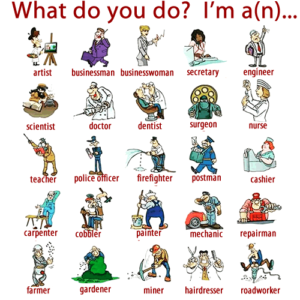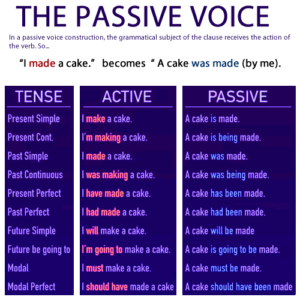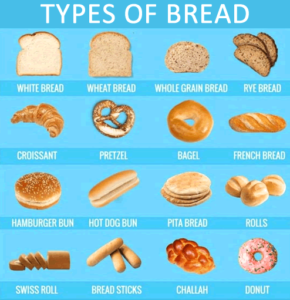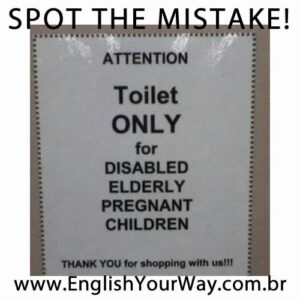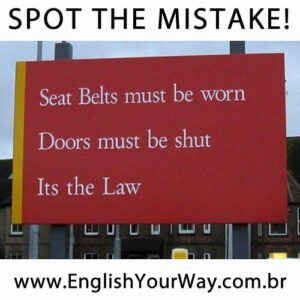When a verb follows a preposition, the verb must be in the gerund form [verb+ing]. This is a rules that has no exception. A lot of prepositions follow verbs (adjust to, agree with, depend on, etc), and if a second verb follows the prepositions , it MUST be gerund. Verb + Preposition + Gerund adapt …
Category: GRAMMAR
Permanent link to this article: https://englishyourway.com.br/grammar-prepositions-gerund/
Mar 10
What’s the difference? IN TIME vs. ON TIME
Many people confuse these two expressions. And while they are similar, there is a very important difference. ON time – This referrs to when you have an appointment or scheduled time to be somewhere or do something. The meeting starts at 2 pm. I have to be on time. (If I’m late something bad will …
Permanent link to this article: https://englishyourway.com.br/whats-the-difference-in-time-vs-on-time/
Mar 08
GRAMMAR – Active or Passive (to bear)
The verb “to bear” has a few different meanings in English. to carry – They arrived bearing gifts. to support – The wall can’t bear the weight of the building. to endure – She can’t bear his bad moods. to turn and follow a direction – Bear left at the fork ahead. to give birth …
Permanent link to this article: https://englishyourway.com.br/grammar-active-or-passive-to-bear/
Mar 06
GRAMMAR – Your Profession
When we ask WHAT DO YOU DO?, we want to know what you do for a living. So,… We need to pay attention to the article (a, an, no article): We use ‘a’ when the profession is singular and begins with a consonant sound. We use ‘an‘ when the profession is singular and begins with …
Permanent link to this article: https://englishyourway.com.br/grammar-your-profession/
Mar 06
GRAMMAR – The Passive Voice
There are two voices in English (and most other languages), ACTIVE and PASSIVE. ACTIVE: Isabella ate the burrito. In this sentence the subject, Isabella, performed the action, and the object, the burrito, suffered the action. To express something in the PASSIVE voice, the idea needs to have an OBJECT. Why? Because in the passive voice, …
Permanent link to this article: https://englishyourway.com.br/grammar-the-passive-voice/
Feb 19
GRAMMAR – Collocations with GO
A collocation is made up of two or more words that are commonly used together. Think of collocations as words that usually go together. Sometimes GO is used without any preposition or article with creates the following list: Go home Go downtown Go abroad Go north/south Go left/right We often GO TO a location. Look at this list: Go to school …
Permanent link to this article: https://englishyourway.com.br/grammar-colocations-with-go/
Feb 16
(SPOTHA) SPOT THE MISTAKE
PUCNTUATION MATTERS!!!!! This is a bathroom that can only be used by children who are disabled, elderly and pregnant. I’m pretty sure that was not the intention. The items in the list should be seperated by comma, ATTENTION: TOILET ONLY FOR DISABLED, ELDERLY, PREGNANT, and CHILDREN. (much clearer!) Can you think of any more? If you …
Permanent link to this article: https://englishyourway.com.br/spotha-spot-the-mistake/
Feb 16
SPOT THE (MS. TEIK) MISTAKE
I love this photo (because I love baked beans)! But… YOUR (possessive adjective) is not the same as YOU’RE (you+are). It should be YOU’RE on holiday. Can you think of any more? If you have any questions or doubts, please ask in the comments or send me a private message. Follow me on Instagram: @englishyourwaybr or …
Permanent link to this article: https://englishyourway.com.br/spot-the-ms-teik-mistake/
Feb 16
(POTS) SPOT THE MISTAKES
Oh no! Confusing ITS (possessive adjective) and IT’S (contraction of it + is or it + has) is quite common. This is clearly trying to say “IT IS the Law!” Can you think of any more? If you have any questions or doubts, please ask in the comments or send me a private message. Follow …
Permanent link to this article: https://englishyourway.com.br/pots-spot-the-mistakes/
Feb 16
(STOP) SPOT THE MISTAKE
Oh dear! Why is there an apostrophe in GETS? We only need an apostrophe to make a contraction (get + is, get + has) which can’t be right, or to show possession (Bob’s car), also not right. Gets is the proper third-person conjugation fo the verb to get. Can you think of any more? If …
Permanent link to this article: https://englishyourway.com.br/stop-spot-the-mistake/

